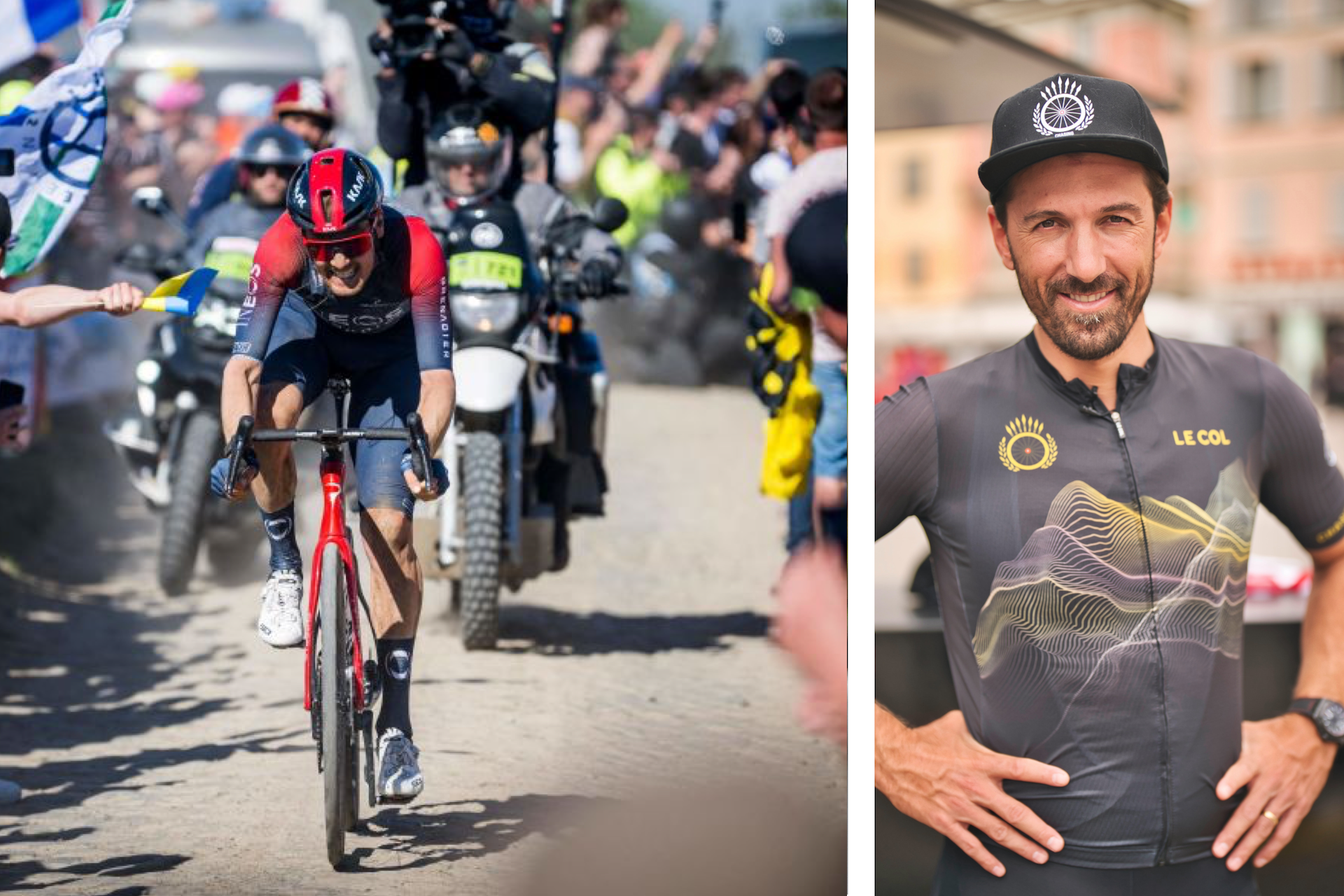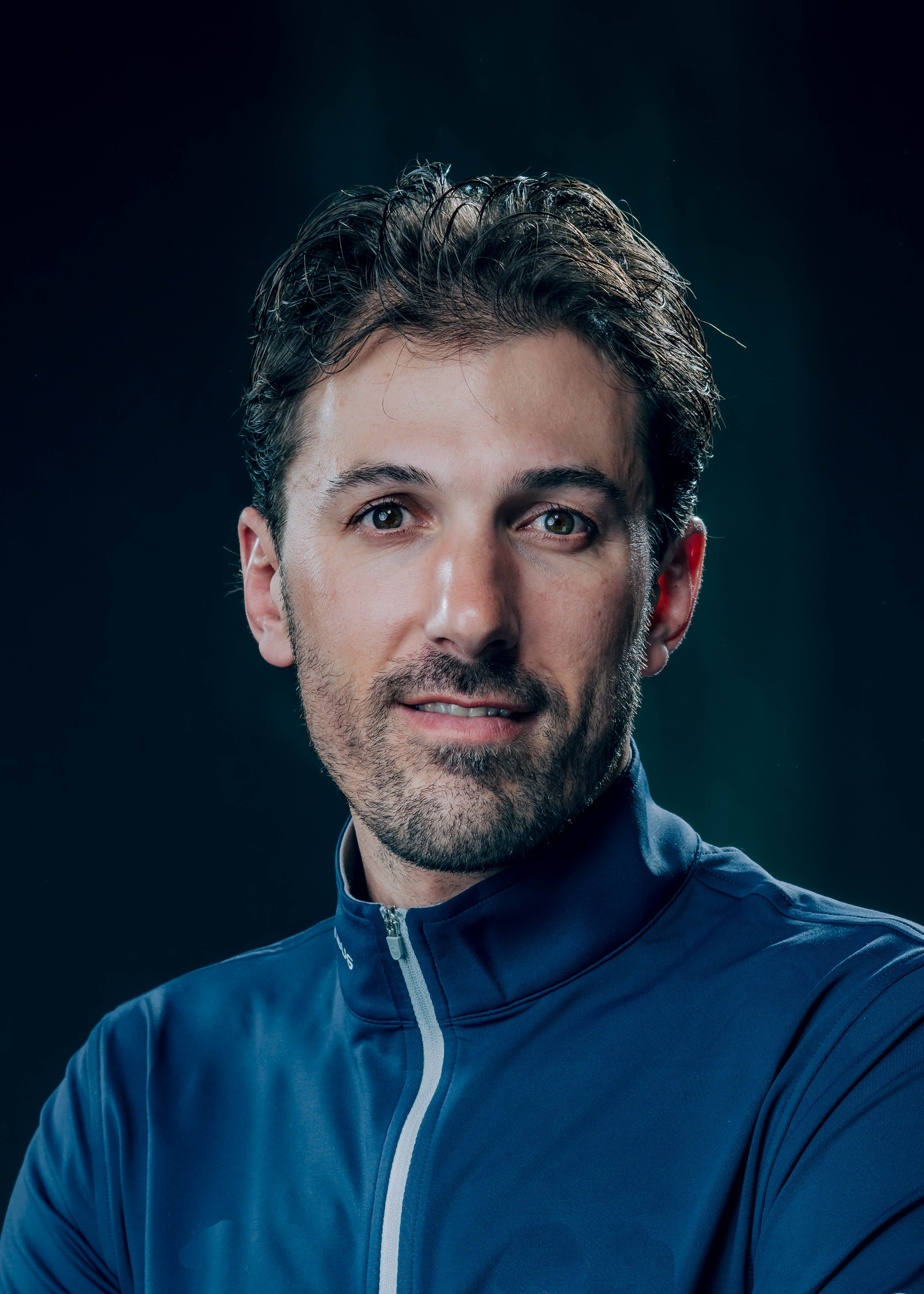Cancellara’s Classics Column: Van Baarle’s perfect, spontaneous Paris-Roubaix
Van der Poel’s style an issue on cobbles, but he can still win someday

When it came down to it, it wasn’t that Wout van Aert or Stefan Küng didn’t have the legs to win Paris-Roubaix, it was simply that Ineos raced perfectly. They were the team that deserved to have the winner, because of the way they rode from start to finish, and they even overcame some bad luck of their own too.
Dylan van Baarle might not have been listed among the very top favourites beforehand, but this certainly wasn’t an unexpected victory from an outsider. He was the best rider on the strongest team. Maybe above all, Ineos were the team with the best tactics and then Dylan was the rider who made the smartest moves in the final.
So it wasn’t just about strength. I always like to put everything in context, from the start of the race to the finish, and Ineos put pressure on the rest when they split the race early on in the crosswinds. Wout, Stefan and the others were able to come back, but it set the tone for the race. Ineos were always on the front foot.
What I liked above all is how Van Baarle rode in the final. Like at the Tour of Flanders, he made clever moves to anticipate the others, first at Mons-en-Pévèle and then again with his winning attack. But I don’t think he planned those moves. It was more that he read the situation each time, and that’s what I loved about his race.
But it’s not just about anticipating, you also need to choose the right moments. Matej Mohorič was very strong, but I think went a bit too early by going before the Arenberg. Or at least, he spent too much energy when he did go.
At the Tour of Flanders, you can maybe plan an attack on the Kwaremont or the Paterberg, but at Paris-Roubaix, you always need to be spontaneous. Of course, you might have an ideal scenario before the start, but if that doesn’t play out, you can’t just stop pedalling. You need to be flexible.
And we saw that Ineos were flexible throughout the day. It wasn’t entirely clear who the leader was beforehand, because Filippo Ganna had made this race a target and Michal Kwiatkowski had won Amstel Gold Race. But they communicated very well, and at critical moments.
Get The Leadout Newsletter
The latest race content, interviews, features, reviews and expert buying guides, direct to your inbox!
That’s so important in Paris-Roubaix. In 2007, when I was racing with CSC as the defending champion, I would have lost the race if the team had worked just for me, because of my shape, the weather and all sorts of circumstances. Instead, I helped us to win it, because I gave Stuart O’Grady the green light to play his card. I said to Stuey: ‘Go, just do it,’ and giving him that freedom and confidence might have been a key to his success.
It was similar for Van Baarle. He said afterwards that Kwiatkowski came up to him at a certain point and said, ‘You’re the strongest, I’m riding for you.’ Can you imagine how he felt when the winner of Amstel Gold Race told him that? It was already clear from Flanders that Van Baarle was very strong anyway, but I’m sure that conversation with Kwiatkowski meant that his mindset changed too.
Van Aert, Küng and Van der Poel
On a side note, it wasn’t always easy to keep track of everything from the television, there were some gaps in information at times. I hope the footage can be better organised in the future. Maybe for Paris-Roubaix, it’s time to start using drones as well as motorbikes to film the race.
In any case, I was watching and hoping Stefan Küng could win, because it would have been great to have a Swiss rider back on top of the podium again. As I expected, he was very strong and he rode very well. He deserved his podium place and I don’t think he made any errors in the final. His small mistake came early, unfortunately, when he stopped for a pee just before Ineos split things in the crosswinds. That might have had an impact later on.
Van Aert was also caught out at the same time, but, like Stefan, he still looked good on the cobbles in the final and finished on the podium. He was quite surprising to me, because after his time off with COVID-19, I really didn’t expect him to ride so well. We obviously don’t know how bad his COVID-19 was, and I’m sure his team knows best, but I hope riders continue to be cautious about coming back quickly after infection.
Mathieu van der Poel came in as the number one favourite, but the Mathieu we saw here wasn’t the Mathieu of the other races this spring. Then again, you have to remember that Milan-San Remo was his first race after injury and, even though he won the Tour of Flanders, he hadn’t really shown the ‘wow factor’ this spring.
He had to be strong to beat Tadej Pogačar in Flanders, of course, and he made that great, badass move in the sprint, but he didn’t make a big attack on the Kwaremont or Paterberg. And again at Roubaix, nobody really made a big difference in the final with a big acceleration behind Van Baarle, Mathieu included.
I think, in general, this race is a difficult one for Mathieu. When you watch him on the cobbles at Roubaix, he doesn’t look as fluid as the others. Van Baarle, Van Aert and Küng all looked more smooth on the cobbles yesterday.
It’s nothing against Mathieu, because I have all the respect for everything he has achieved and everything he does for our sport. But I don’t think he has the perfect style on the cobbles for this race. When it comes to his style, he moves around a lot. He's not Ballerini, he's not Tafi, he’s not Museeuw. But, of course, with his ability, he can still win this race someday…
Yesterday, though, was all about another Dutchman. Dylan van Baarle was maybe a ‘hidden’ favourite, but, in the end, he was a fully deserving winner.
Fabian Cancellara is an ex-professional cyclist who raced from 2001 to 2016 for Mapei, Fassa Bortolo, CSC and Trek. One of a select trio of riders to have won Paris-Roubaix and the Tour of Flanders three times, alongside arch rival Tom Boonen and Johan Museeuw, he is the only racer who can add the Strade Bianche triple to that glittering statistic – first across the line in Siena at four year intervals between 2008 and 2016."Spartacus" was also a formidable time trialist: four times world champion, twice Olympic champion, his final race as a professional cyclist came in the TT at the Rio Olympics in 2016, where he triumphed over second-placed Tom Dumoulin by a staggering 47 seconds. Alongside various business interests – and being a Cyclingnews columnist, of course – Cancellara is a founder of the Tudor Pro Cycling team, currently racing at UCI Pro Team level.
